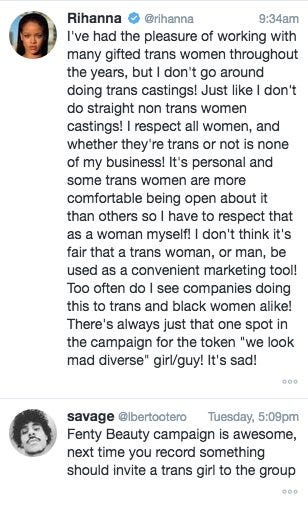SAGINAW, Mich—The Saginaw County, Michigan Humane Society created some controversy on social media after advertising a “transgender cat” for adoption.
The Humane Society wrote, “This handsome cat came to us by walking up to a volunteering and not letting her leave. When arriving to HSoSC he was a very large intact male. He was named Edmond. While waiting to get neutered he became stressed which resulted in a blockage. After multiple attempts to correct the blockage it was decided the best course of action was to have a perineal urethrostomy performed (male to female). This surgery allowed E to become a normal cat again. Since then E has enjoyed being with the other cats, playing, and cuddling.

The cat is now named “E” and was formerly known as Edward. Within minutes of posting on social media, people began sounding off in support and opposition of the post.
Below are just some of the comments on Facebook:
“I support Any humane society in their efforts to get animals adopted but this is absolutely ridiculous to post this that way. Just sheer stupidity.”
“Who cares what he is... he's a cat that needs a home people!”
“This poor sweet baby! He's so deserves a home. And he's adorable”
“My daughter’s cat had the same problem . He had the same surgery done.”
“Pronouns me/ow”
“I can’t believe all these people making such a big deal over this. The Humane Society does so much for the animals of Saginaw and people are actually fighting over this. I made a comment on this sight years ago and got called every name you can think of.”
The Saginaw County Humane Society replied to my post on social media about the adoption post:
“E is such a great cat. He had a rough start with us medically, however, after this surgery he has recovered perfectly with no further complications. You are correct we have a savvy adoption coordinator that does everything possible to help us find great forever homes.”
They said they used the wording “transgender” to help spur the adoption of the cat and other animals:
The procedure to remove the narrow part of his urethra in his penis was medically necessary after 8 different catheter attempts to prevent urinary blockage. Calling him transgender is simply marketing to get someone to read and understand his medical history as this had to be done to save his life. This post was not done to stir the pot, however, we do respect ALL people and we feel that it is not right for anyone to negatively judge, degrade or criticize another human if you have not walked in their shoes!
Support my independent journalism by becoming a paid subscriber for $5 a month. Help me keep this free for everyone and allow me to keep telling the stories the media isn’t telling you.
According to Cats.com, mating is a purely instinctual behavior intended for reproduction. It's theoretically possible that cats can be gay, bisexual, or identify in another way, we have no scientific evidence to support this.
There are various examples in the animal kingdom of sex changes and gender role reversals, often related to reproductive and social behaviors. Here are a few examples:
Sequential Hermaphroditism: Some animals can change sex during their lifetime. For example, many fish species, such as clownfish and wrasses, exhibit sequential hermaphroditism. Clownfish are born male and can become female as they mature. In wrasses, the dominant female can change to male if the dominant male is removed.
Simultaneous Hermaphroditism: Some animals, like earthworms and certain species of snails, possess both male and female reproductive organs simultaneously.
Gender Role Reversal: In certain species, traditional gender roles are reversed. For example, in seahorses, it is the males that become pregnant and give birth.
Sexual Dimorphism and Social Structures: In some species, individuals can display behaviors or physical traits typically associated with the opposite sex to gain reproductive or social advantages. For instance, some female spotted hyenas have external genitalia that resemble those of males, a trait that plays a role in their social hierarchy.
Some people are now questioning whether it is appropriate for companies or organizations to use transgender issues as a marketing strategy.
According to an article in TheDrum.com There's a growing call for brands to go beyond tokenism and truly support the trans community. The report says increased visibility in media and advertising has not alleviated the persistent challenges faced by trans people, including heightened violence and online abuse.
The author of the piece suggests influencers and agencies stress that representation should be continuous, not just during Pride Month, and should involve the community at all stages of campaign development.
Singer Rihanna responded to someone on Twitter (X) saying the issue of transgender should not be used as a marketing tool.

The LMD Marketing Agency wrote a blog post about marketing the transgender issue. When it comes to using humor they said the following:
Use humor—sensitively. Humor is fine, but don’t use transgender people as the punchline. Break out of common tropes—like the heterosexual man in bad drag—that portray transgender people the butt of a joke. Instead, a theme of “acceptance with a twist” will work to counter worn-out cliches and lower the barriers to acceptance.




















